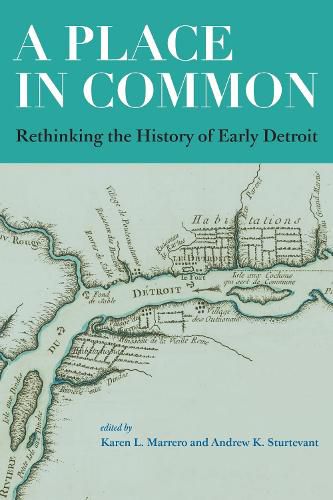Readings Newsletter
Become a Readings Member to make your shopping experience even easier.
Sign in or sign up for free!
You’re not far away from qualifying for FREE standard shipping within Australia
You’ve qualified for FREE standard shipping within Australia
The cart is loading…






At the turn of the eighteenth century, Indigenous nations designated Detroit as a "common bowl" and a crucial nexus where they shared resources, made compromises, and coexisted. As the century unfolded, Detroit continued as a polyglot community in the face of expanding Euro-American settlement. The region became a highly charged space where the rituals of political negotiation grew in importance alongside a constant threat of violence. British political and economic systems continued to operate long after the end of the American Revolution, creating a shared cultural border at the end of the eighteenth century that would endure even as the American Empire reestablished rule on the north side of the river. Both Anishinaabe and Wyandot people set aside land for future occupation of their people, re-creating another transnational space in the region. A hundred years later, issues of race, economic development, political partisanship, and overlapping national claims continued to resonate as the city commemorated and mythologized its origins. This book considers how larger watershed occasions impacted the Detroit region and how, in turn, the unique particularities of local custom impacted regional and national trade and politics and the very nature of how the city continues to view its past.
$9.00 standard shipping within Australia
FREE standard shipping within Australia for orders over $100.00
Express & International shipping calculated at checkout
At the turn of the eighteenth century, Indigenous nations designated Detroit as a "common bowl" and a crucial nexus where they shared resources, made compromises, and coexisted. As the century unfolded, Detroit continued as a polyglot community in the face of expanding Euro-American settlement. The region became a highly charged space where the rituals of political negotiation grew in importance alongside a constant threat of violence. British political and economic systems continued to operate long after the end of the American Revolution, creating a shared cultural border at the end of the eighteenth century that would endure even as the American Empire reestablished rule on the north side of the river. Both Anishinaabe and Wyandot people set aside land for future occupation of their people, re-creating another transnational space in the region. A hundred years later, issues of race, economic development, political partisanship, and overlapping national claims continued to resonate as the city commemorated and mythologized its origins. This book considers how larger watershed occasions impacted the Detroit region and how, in turn, the unique particularities of local custom impacted regional and national trade and politics and the very nature of how the city continues to view its past.